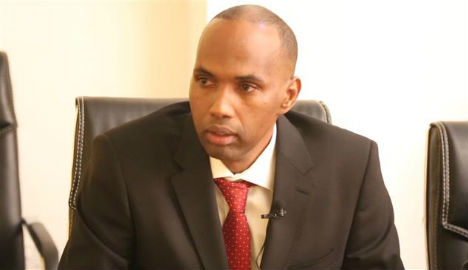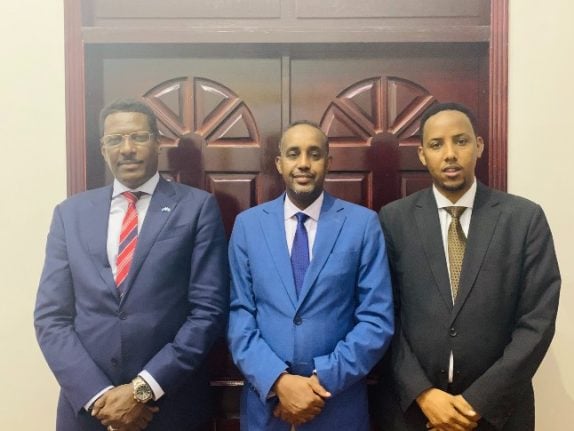Somalia's new President Mohamed Abdullahi Mohamed, known as Farmajo, announced Hassan Ali Khaire's appointment over Twitter on Thursday, just a day after he was inaugurated.
Khaire, 46, who came to Norway as a refugee in the late 80s, has like most of his compatriots taken advantage of an exemption Norway gives Somalis from its ban on dual citizenship.
Mazyar Keshvari, the Progress Party’s immigration spokesman has argued that Khaire's appointment as his country's leader removed any justification for his dual citizenship.
“He should be deprived of his Norwegian passport,” he told Norwegian broadcaster NRK. “A country's prime minister cannot have multiple nationalities. If conflicts occur, where they will their loyalties lie?”
The appointment of Khaire, who has degrees from the University of Oslo and the University of Edinburgh, marks a major step forward in Somalia’s attempt to establish a functioning government following 25 years of civil war and failed government.
Khaire, a former regional director for the Norwegian Refugee Council and later an executive with London’s Soma Oil and Gas, is seen as a capable administrator.
But Keshvari suggested it might be time to end the special treatment of Somali citizens, particularly those who take senior positions in the country’s emerging government.
“When someone has been appointed a Member of Parliament and even the Prime Minister of Somalia, we have to assume that they are Somali nationals,” he said.
“The fact that he has now become Prime Minister clearly shows that his need for protection should be seen as temporary and not permanent in nature.”
Dual citizenship is permitted by most countries in Europe, including Norway’s neighbours Sweden, Finland, and Denmark, but it is banned in Norway.
Norway’s Green Party has proposed that Norway follow Denmark, which passed a dual citizenship bill in December 2014.
In February 2016, a leaked memo sent by a UN watchdog to diplomats in the UK and Norway, revealed that Khaire was under investigation by UK's Serious Fraud Office (SFO) for possible ties to extremist groups in East Africa, including al-Shabaab.
The SFO's enquiry was closed in December 2016,
“The SFO has concluded, based on the information and material we have obtained, that there is insufficient evidence to provide a realistic prospect of conviction,” an SFO spokesman told the Daily Telegraph.



 Please whitelist us to continue reading.
Please whitelist us to continue reading.